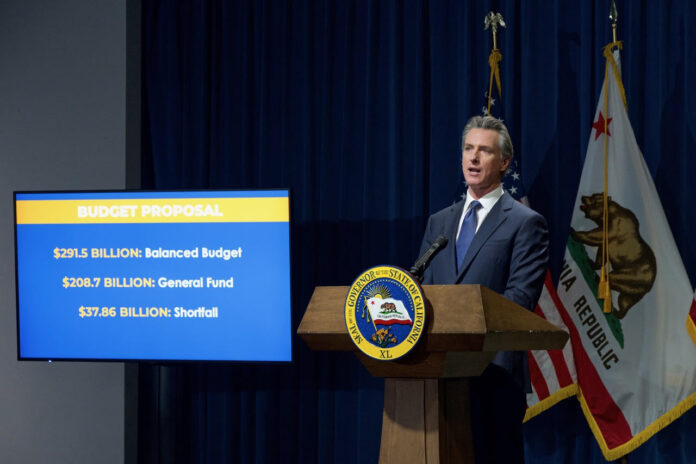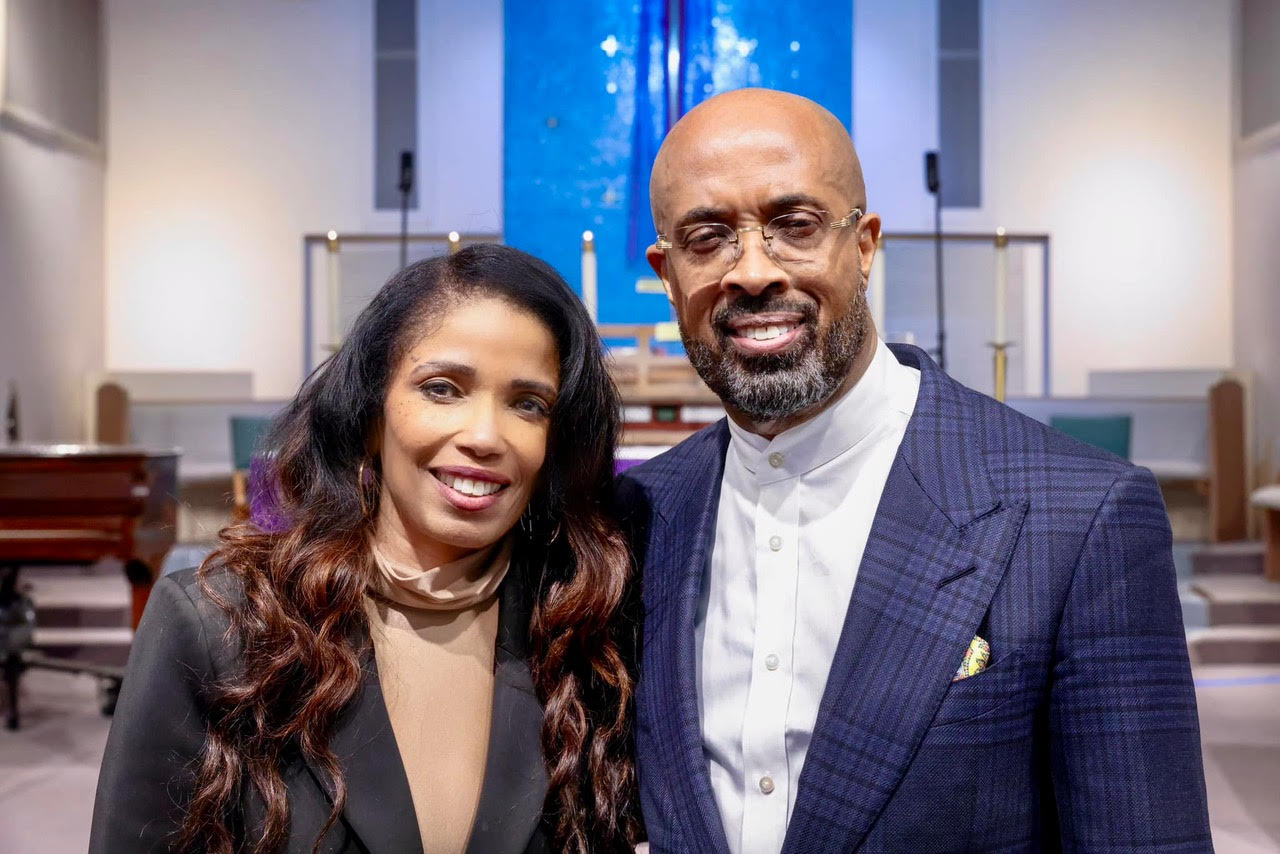
By Tanu Henry and Joe W. Bowers Jr., California Black Media
Legislative Analyst’s Office: California Budget “Problem” to Grow by Estimated $15 Billion
On Feb. 20, the nonpartisan Legislative Analyst’s Office (LAO) released an update on the California state budget. According to the report, the projected budget shortfall could increase by $15 billion by the time the Governor presents his revised 2024-25 spending plan in May.
Previously, the LAO had estimated the state will have a $58 billion deficit. Now, based on the most recent calculations, that figure has been updated to $73 billion.
“The actual increase in the state’s budget problem will depend on a number of factors, including formula-driven spending changes, most notably Proposition 98 spending requirements for schools and community colleges,” the LAO report states.
Last week, the California Department of Finance also released its February report, which indicated that revenues received during the last month are 19.7% (or $5 billion) below the Governor’s budget forecast for January.
The revenue sources in the report include personal income cash receipts, corporation tax cash receipts and sales and use tax cash receipts.
Report: Racial Gaps Persist in California’s Labor Market
A Public Policy Institute of California report released last week on labor force participation within the state indicated that racial gaps continue to exist in the state.
“White Californians have the highest participation rates (86%), and Black Californians the lowest (81%),” states the report.
“In terms of gender, Latino, White, and Asian men have very similar labor force participation rates (around 91%), with Black men 7 percentage points lower (83%). Among women, Latina women have the lowest participation rate (74%),” it continues.
At 89%, Black women have a higher labor participation rate than Black men.
“Overall, gender gaps in labor force participation rates are lowest among Black Californians (5 percentage points) and highest among Latinos (17 percentage points),” the report reads.
The report also found strong correlations between levels of education and the labor participation rate. For example, Black Californians without a high school diploma have the lowest participation rates across all ethnic groups, at 48%.
“Among, college graduates of all race/ethnic groups have high labor force participation rates, and differences between groups are generally small,” the report states.
Overall, California is experiencing declining participation in the workforce, due mainly to the state’s aging population.
In its conclusion, the report advises policymakers to take steps like implementing training programs and assisting younger mothers with childcare, among other solutions, to help increase labor participation. These actions could lead to more than one million additional Californians joining the workforce.
Washington: California First Partner Jennifer Siebel Newsom Convenes America’s First Spouses to Discuss Mental Health
California First Partner Jennifer Siebel Newsom is concerned about the ways social media and other forms of technology are impacting the mental health of America’s children.
To identify the kinds of support families need, and to bring broader awareness to the problem, Siebel Newsom organized a meeting with the spouses of governors from across the country in Washington, D.C. last week.
Siebel Newsom said research has found that excessive exposure to social media can create a “comparison culture” that makes children feel inadequate, isolated and unsupported.
“Yesterday’s convening was about tackling this crisis head-on, forging partnerships with fellow First Spouses and sharing best practices to support the mental health and overall well-being of America’s children.”
At the event, organized in partnership with the Child Mind Institute and Common Sense Media, the First Partner was joined by Colorado First Gentleman Marlon Reis, Delaware First Lady Tracey Quillen Carney, Guam First Gentleman Jeff Cook, Hawaii First Lady Jaime Kanani
Green, Maryland First Lady Dawn Moore, New York First Gentleman William Hochul, and Utah First Lady Abby Cox. U.S. Health and Human Services (HHS) Secretary Xavier Becerra also attended the event.
“Across America our youth are signaling that they’re lonely, they’re hurting, and often don’t know where to turn. From California to Maine, state leaders are stepping up to meet our children where they are and when they need us most,” said Becerra. “The Biden Harris Administration and HHS will continue to be good partners as we build up the 988-crisis lifeline, 24/7 critical access care, and expanded school-based behavioral health services. Our future depends on it.” According to 2023 advisory issued by U.S. Surgeon General Vivek Murthy, young people who use social media for 3 hours a day or more are at a heightened risk for depression and anxiety.
Other participants at the event, included Neera Tanden, Domestic Policy Advisor to President Biden; California Health and Human Services Secretary Dr. Mark Ghaly; Child Mind Institute President Dr. Harold Koplewicz, and Chief Advocacy Officer of Common Sense Media Danny Weiss.
Legislative Republicans Introduce Bills to Support Small Businesses
On Feb. 22, Republican legislators from both the Senate and the Assembly announced a package of bills written to support small businesses.
These lawmakers argue that small businesses, which account for about 90% of the state’s economic output – including jobs and revenue – are facing a number of challenges, and the Democratic majority in the State Legislature is not providing sufficient support. Those obstacles include an excess of regulations, fees and taxes, as well as a “29% increase” in retail theft that are affecting their bottom lines.
“We’re here to talk about how we want to help small businesses. We want to reduce their costs. We want to get something real don on retail theft this year and provide the reforms that are necessary to support these small businesses throughout this state,” said, Assemblymember James Gallagher (R-Yuba City), Assembly Republican leader.
“Small businesses in California are under a feeling of oppression,” said Senate Minority Leader Brian Jones (R-Santee).
“When you talk to small businessowners in California, it’s amazing to me, how many of them have considered leaving the state, how many of them have made plans to leave the state, and how many of them have already looked up on Zillow what they can buy if they sell their house here in California,” he said.
The bills are:
- Assembly Bill (AB) 1845, authored by Assemblymember Juan Alanis (R-Modesto), would provide grants to district attorney offices and law enforcement agencies to investigate and prosecute retail theft.
- AB 1894, authored by Assemblymember Tri Ta (R-Westminster), would allow businesses time to fix violations before being fined.
- AB 1972, authored by Assemblymember Juan Alanis (R-Modesto), will expand organized retail theft to include items stolen from a merchant’s cargo.
- AB 2030, authored by Laurie Ann Davies (R-Laguna Niguel), would help California businesses compete for state contracts.
- AB 2274, authored by Assemblymember Diane Dixon (R-Newport Beach), proposes a “back-to-school” sales tax holiday for businesses.
- SB 1259, authored by Sen. Roger Niello (R-Roseville), would streamline the process for business to build.
Rep. Barbara Lee, Civil Rights Leaders Press Biden on Racial Justice
Rep. Barbara Lee (D-CA-12), who is campaigning for U.S. Senate — and three other African American congressional colleagues — joined efforts with prominent civil rights leaders to urge President Biden to support racial justice policies.
In one letter, signed by the Congressmembers and another signed by more than 200 representatives of civil rights organizations, asked Biden to meet with them to push a slate of 11 pieces of racial justice legislation. The bills relate to a number of issues, including police reform, voting rights, environmental justice and closing the racial wealth gap.
“We call upon the White House to lend its considerable power to these causes,” read the letter signed by Lee. Rep. Sheila Jackson Lee (D-TX-18), Rep. Cori Bush (D-MO-1) and Rep. Jamaal Bowman (D-NY-16).
“We ask for executive actions and orders aligning with and supporting these legislative efforts to achieve racial equity and reparative justice. Executive actions and orders would ensure these bills receive the attention they need to pass swiftly and with the backing they deserve,” the letter continued.
The letters invite the President to a meeting to discuss a strategy for advancing the policies.
“This conversation is not just about policy; it is about the people of the United States of America, the fate of our democracy, national unity, and national security,” the letter emphasized.
Civil Rights Leader Urges Solidarity With Palm Springs Section 14 Survivors
About 70 years ago, beginning in the 1950s through the 1960s, the Riverside County resort city of Palm Springs demolished the homes and other prosperities of some of its Black and Latino residents without warning or compensation in an area known as Section 14.
Now, civil rights leaders are working to raise awareness about the historical injustices suffered by Section 14 survivors, aiming to seek compensation for their losses.
Last week, the Rev. Dr. Frederick Douglass Haynes III, President and CEO of the Rainbow PUSH Coalition — successor to the Rev. Jesse Jackson – praised advocates from different backgrounds for standing in solidarity with the descendants of Section 14.
Haynes was speaking at a prayer vigil organized to coincide with Black History Month and to support survivors and descendants. It was held at the Church of St. Paul in the Desert in Palm Springs.
“What is occurring right now in Palm Springs is a beautiful show of unity across faiths, backgrounds, races, sexual orientations, age, and beyond. This city has an opportunity to be a leader, and to show the rest of the country how much good can come from standing together and doing the right thing for each other. It’s as simple as that,” said Haynes.

“Black history is American history – and that means speaking candidly about the past, even if it creates discomfort,” said Areva Martin, lead counsel for the Section 14 Survivors.
“The sixties and fifties weren’t that long ago, but for my clients, the destruction of their homes, possessions, and community sixty years ago has deeply impacted their lives to the present day,” continued Martin. “With strong allies across the region and state – now, with Rev. Dr. Haynes, a national civil rights leader joining us – we are building a powerful coalition of supporters and allies, and our movement is being recognized by leadership here in Palm Springs and beyond. We are grateful for the support we have received, and for the prayers of everyone across this city and region. Hopefully by this time next year, we will honor Black History Month in Palm Springs with a celebration of justice achieved.”
Hanes said Section 14 survivors have waited too long for justice.
“Today, we lift our hearts and hands in prayer for the leaders of this beautiful city to seek a path forward that honors the past and allows justice to be realized here,” he said.


